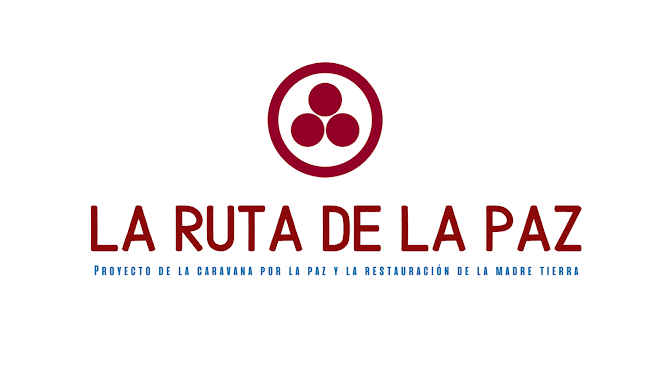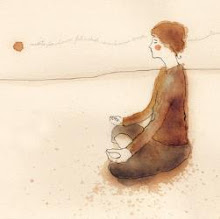
January 2012, Valley of Rari: The summer is in full force here, and the sun pulses like a burning magnet over the “techos teclados” and corn crops. In Rari -- a small village with only 600 residents—its the season for construction projects, farm work, and, if you’re lucky, siestas by the river. You may not notice it at first, driving along Rari’s dusty roads, past the famous “Crin” artesania stands, but the valley is aflame with transformation.
“There’s no doubt about it—this valley is going through a huge transition,” Juan Pablo Lazo, permacultor and manager La Bella Ecoaldea, explains. “People from all over the planet are hearing a call to come and occupy the valley in order to ignite a spiritual, ecological, and educational movement.”
On a concrete level, Lazo, along with several other visionaries, are in the process of creating an eco-village here in Rari. Drive 3.5 hours south from Santiago, and you will find “La Bella Eco aldea” nestled at the base of the Andes. With 135 acres of fertile, agricultural land, it’s a blank slate, an opportunity to realize self-sustainability and spiritual community.
After praying and searching for over five years, Lazo and his crew discovered and bought the land 10 months ago. Aside from the prophetic myths about witches and oracles in the valley, other reasons for buying the land were clear: with a warmer climate and longer growing season than the south and more moisture than the northern deserts, the team felt it was an ideal transition for people moving from Santiago. The land has running water and a river as well as many underground natural fountains. They are not along in their quest, either. Another budding spiritual community, La Ecoaldea de las Artes, is growing roots nearby, and already, 9 families have already moved to Rari to live and support the ecovillages.
“The velocity of synchronicity is amazing. Some spiritual teachers talk about how the Kundalini of the planet has moved from The Himalayas into South America and is now resting in Chile; I see La Bella as a pillar of inspiration for anyone who is called to cooperate and co-create,” Lazo says.
In just two months, the team has transformed the land from a raw piece of agricultural land to an inhabitable community. Visit now and you have everything you need to live in basic comfort: a kitchen with gas and running, potable water, compostable toilets, solar electricity, a teepee for shade and ceremony, and a large 39-foot geodesic dome for artistic creation and workshops. Camp under generously shaded trees, bathe in the river, and walk to the garden to harvest squash (the size of a large forearm), arugula and kale.
“Preparing the land for community is a huge blessing and a lot of work,¨ Lazo confesses. ¨We have gross work like construction and more subtle work like decoration and electricity to make this place feel generous and comfortable for everyone arriving this summer.¨
As of now, a group of 4-6 people have installed their tents for the summer. They rise at dawn to meditate and do yoga before charging through the heat in order to finish the renovations of an old barn (that will act as an office), build a shower house, and gather their first wheat harvest of the season.
On January 19, a skilled bioconstructor and permaculture architect from the USA, Cuatro Kruse, will teach a series of workshops. Separated into four, 8-day workshops, Kruse will teach participants how to build a “cob” kitchen from scratch, all the way from the foundation to walls with ecobricks, a reciprocal/living roof, grey water filtration, and solar-powered electricity. There are still spaces open for inscriptions and volunteers: www.buenmundo.cl.
When volunteers arrive, they are invited to enter into the Experience of Community Life. Its intentional travel, a loose version of “woofing”. The day is planned around meals, morning yoga and meditation circles, afternoon sharing circles, and the work tasks.
“We realize that discipline brings freedom,” says Carlos Prosser, one of La Bella’s council member. Prosser leads teams all over the Chilean school systems in environmental education and recycling. His most recent book is “el Buen Sexo: The Art of Love”. “There are plenty of place you can go and camp for the summer. But here, we are building something bigger, with an intention, so it takes a lot of concentration.”
And the intention of the Eco-Village? Nikola Bahna, one of the founders of La Bella, explains it like this: “As of now, two main themes support our visión for individual and community development. One is a solid spiritual base, where we recognize the sacredness of all life forms, where we develop the capacity to understand and comprehend ourselves in order to expand our potentials. The second key is through creativity and art. We believe that life is a constant dance, a place to develop our creativity in everything we do, whether its preparing a meal, designing a house, educating our children, or playing music and dancing.
This resonates a bit with famous Jungian feminist Irene Claremont de Castillejo’s call for a new, modern hero. “One cannot help wondering if man’s pursuit of the physical moon is not the outer counterpart of his paramount need, of which he is not yet fully aware, to explore the cold unpredictable half-light of his own feminine nature.”
Lazo agrees. “There is so much war, violence, distress in our lives, and we know we need a new culture. On a spiritual level, I believe we are shifting from the darkness to the light, from a world of war to peace, from material value to inner freedom. We are learning to take responsibility for our individual transformation in order to support our healthy, whole collective communities (both La Bella and the valley of Rari.) We realize we live in an inter-dependent world where our actions affect others; therefore, our project is a symbol of “optimism”, of a healthy community where people can look to for inspiration about how to create a harmonious dynamic within all our relations.
Though many intentional communities have begun in Chile, a fully functioning, self-sustainable community has yet to take root. The team of La Bella has wide open, humble eyes that realize their status as potential pioneers of the current movement. In addition to the upcoming workshops (MORE), their goals involve creating an international school of peace, artistic residencies, and becoming 100% self-sustainable.
“We are huge advocates of culture and art, and will integrate art as therapy and permaculture as natural science into our education. We want to be the living examples of peaceful education, innovative permaculture, art. We want to cut our addiction from oil. We want to be supported and to also, most importantly, support the change of the pueblo, from recycling, clean water, air, and families,” says Lazo.
Interested in learning more or helping in La Bella? If you are in or will be in Chile soon, you can sign up as a volunteer. It’s similar to the international “Woofing” project where you spend time and work in exchange for lodging. Volunteers only have to chip in for their meals, which average between $6-10 daily. If you have an affinity towards eco-village development, permaculture, bio-construction, tools for non-violent communication/dialogue, or just feel inspired to donate your time and energy, you can contact: contacto@buenmundo.cl (espanol) o Katie@altaer.org (English).
Lazo is also in charge of the Association of Buenmundo, which is a society that produces and helps fund the development of eco-villages. For more information about how to become a member, write to: contacto@buenmundo.cl
Foto: Cuatro Kruse

